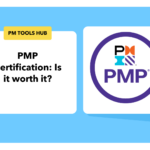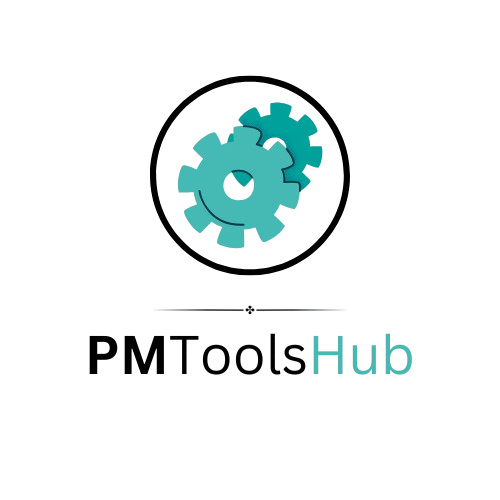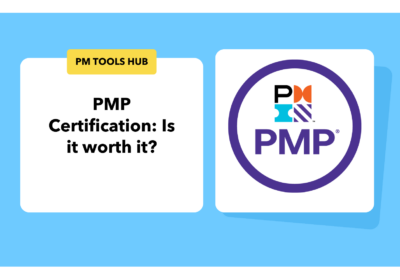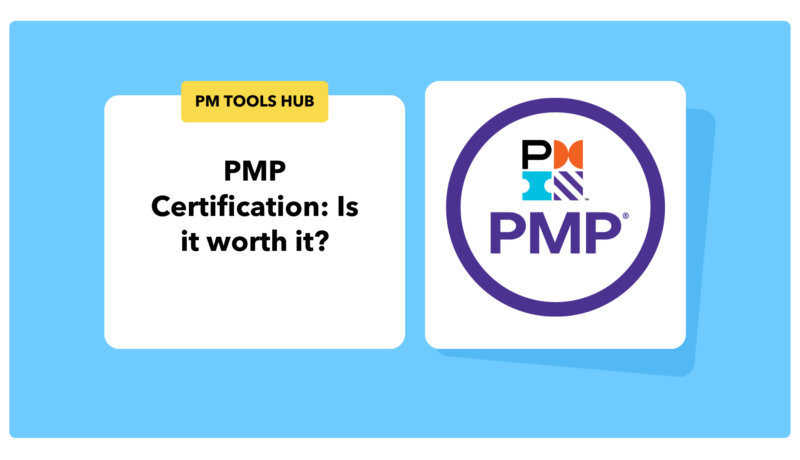
Is the PMP Certification Worth It in 2025? Pros, Cons, and Who Should Get It
If you’ve been in project management for a while, you’ve probably heard about the Project Management Professional (PMP) certification. It’s one of the most recognized project management credentials worldwide, and many professionals swear by it as a career booster. But is it really worth the time, effort, and cost?
Table Of Content
- What Is the PMP Certification?
- PMP Certification Requirements
- The Pros of Getting a PMP Certification
- 1. It Can Give You an Edge in the Job Market
- 2. Higher Earning Potential
- 3. Boosts Your Project Management Skills
- 4. Improves Your Credibility & Networking Opportunities
- 5. Can Help You Stand Out in a Competitive Market
- The Cons of Getting a PMP Certification
- 1. The Cost Can Be High
- 2. It Requires a Significant Time Commitment
- 3. It’s Not Always Necessary for Career Growth
- 4. Maintaining the Certification Requires PDUs
- Who Should Get the PMP Certification?
- You Should Get the PMP If
- You Might Not Need It If
- Final Thoughts – Should You Get the PMP?
I’ll be honest—I don’t have my PMP certification yet. I was actively studying for it, but in the weeks leading up to the exam, I landed a new job offer that required my full attention for onboarding. Life happened, and I had to put the PMP on hold. But it’s something I know I need to pick back up because I’ve seen firsthand how it can give project managers a competitive edge in the job market.
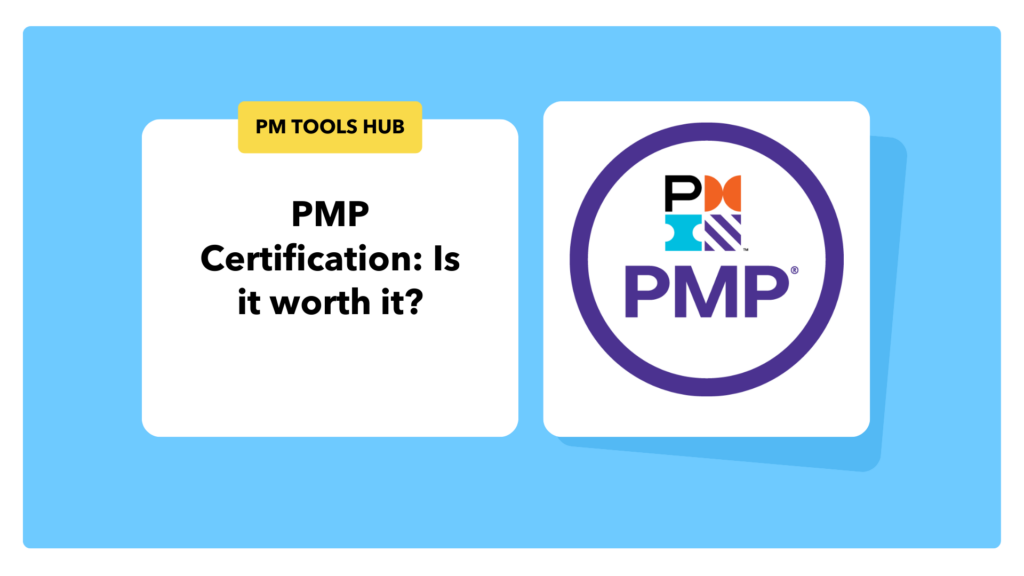
So, let’s break it down: Is the PMP worth it? Who should get it? And what are the real pros and cons?
What Is the PMP Certification?
The PMP certification is offered by the Project Management Institute (PMI) and is designed to validate your ability to manage projects effectively. It’s not just about book knowledge—you need real-world experience to even qualify for the exam.
PMP Certification Requirements
To sit for the PMP exam, you need to meet the following criteria:
- If you have a four-year degree: 36 months (3 years) of project management experience + 35 hours of project management education (or a CAPM certification).
- If you have a high school diploma or associate’s degree: 60 months (5 years) of experience + 35 hours of education.
Once you qualify, you’ll need to pass a 180-question exam covering the three core PMP domains:
- People (Leadership, team dynamics)
- Process (Project execution, risk management)
- Business Environment (Compliance, strategic alignment)
Now, let’s talk about the real reasons why people get the PMP.
The Pros of Getting a PMP Certification
1. It Can Give You an Edge in the Job Market
One of the biggest reasons people pursue the PMP is career advancement. Many employers prefer or even require PMP certification for senior project management roles. It’s a globally recognized credential, and if you’re competing against someone with similar experience but they have a PMP and you don’t—guess who’s more likely to get the job?
2. Higher Earning Potential
According to PMI’s Earning Power Salary Report, PMP-certified project managers earn 16% more than those without it. In the U.S., the median salary for PMP holders is around $120,000 per year, compared to $100,000 for non-certified project managers. That’s a significant jump, especially over the long term.
3. Boosts Your Project Management Skills
Even if you’ve been managing projects for years, the PMP forces you to standardize your approach and understand best practices in a structured way. The exam covers methodologies like Agile, Waterfall, and hybrid approaches, so you’ll walk away with a well-rounded understanding of how to handle projects efficiently. However, it’s important to note that obtaining a PMP certification will not inherently improve your proficiency with project management tools like Jira, ClickUp, or Asana—those require hands-on experience.
4. Improves Your Credibility & Networking Opportunities
Having a PMP certification signals to employers and peers that you’re serious about your profession. You also get access to PMI’s network, which includes hundreds of thousands of certified professionals worldwide. This can open doors to mentorship opportunities, job referrals, and collaborations.
5. Can Help You Stand Out in a Competitive Market
If you’re in an industry where project management is highly competitive (e.g., IT, construction, finance), a PMP can serve as a differentiator. While it won’t replace hands-on experience, it can give recruiters an extra reason to shortlist you for interviews.
The Cons of Getting a PMP Certification
1. The Cost Can Be High
The PMP isn’t cheap. Here’s a breakdown of the costs:
- Exam Fee: $555 for non-PMI members, $405 for PMI members
- PMI Membership: $129 per year (optional but reduces exam cost)
- Study Materials: $100 – $500+ (books, courses, practice tests)
- Training Programs: Can range from $500 to $2,000
For many professionals, the total cost can exceed $1,000—not to mention the investment in study time.
2. It Requires a Significant Time Commitment
Most people spend 2-3 months studying for the PMP exam, dedicating 10-20 hours per week. The exam is notoriously difficult, with scenario-based questions that test real-world application rather than memorization.
3. It’s Not Always Necessary for Career Growth
While the PMP is highly respected, not every company requires it. Some industries prioritize hands-on experience over certifications. If you’re already established and have a strong track record, the PMP might not drastically change your career trajectory.
4. Maintaining the Certification Requires PDUs
Once you earn your PMP, you must maintain it by earning 60 Professional Development Units (PDUs) every three years. This usually involves attending webinars, training courses, or contributing to the project management community.
Who Should Get the PMP Certification?
If you’re on the fence about whether the PMP is worth it, consider these scenarios:
You Should Get the PMP If:
- You want to stand out in a competitive job market.
- You’re applying for senior project management roles that list PMP as a requirement.
- You’re in an industry where project management certifications are highly valued (IT, finance, engineering, construction, etc.).
- You want to increase your earning potential.
- You enjoy structured learning and want to formalize your project management knowledge.
You Might Not Need It If:
- Your industry prioritizes experience over certifications.
- You already have a strong network and job security.
- You don’t plan to work in traditional project management roles.
- The cost and time commitment don’t justify the potential salary increase for your situation.
Final Thoughts – Should You Get the PMP?
So, is the PMP worth it? For most project managers, yes—but it depends on your career goals. If you want to boost your salary, increase job opportunities, and solidify your expertise, it’s a smart investment. But if you’re already established and don’t see the need for a certification, you might be just fine without it.
As for me? I still need to finish what I started. I know that getting PMP-certified could open doors down the road, and I’d rather have it than regret not getting it later.
Please share this article if you like it!
